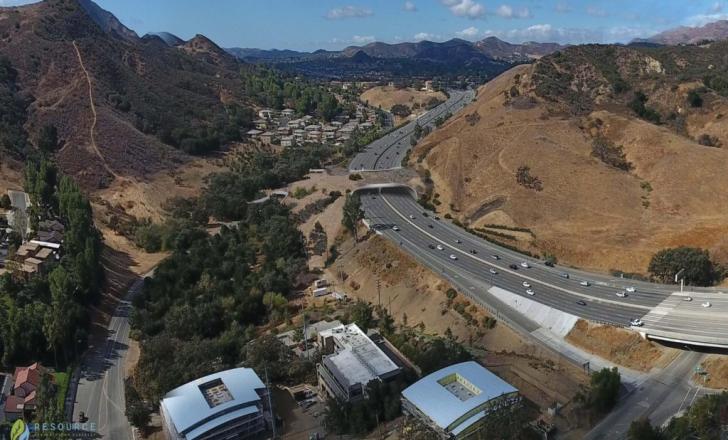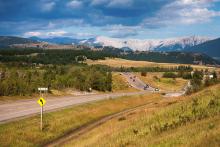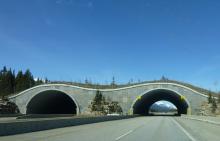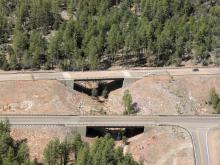
Construction is officially to start today – Earth Day - in California on what reportedly will be the world’s largest animal crossing bridge over a highway.
The 67m-long, 50m-wide structure will span the eight-lane California state freeway 101 (Ventura Freeway) at Liberty Canyon in Agoura Hills, near Los Angeles. Phase two of the project will extend the structure over the nearby local two-lane Agoura Road.
The project has been several years in various design and approval stages and will cost between US$87 million and $90 million. When complete in late 2025, the crossing will be named the Wallis Annenberg Wildlife Crossing in honour of the project’s largest donor, Wallis Annenberg and the Annenberg Foundation which gave $25 million.
The region, called the Santa Monica Mountains, is home to dozens of large animals and mammals, including coyotes, cougars and mountain lions that search far and wide for mating and food. There are also mule deer, goat snakes, lizards and rabbits. The freeway dissects many conservation preserves and many of these animals meet their end attempting to cross the busy freeway that carries around 300,000 vehicles each day.
Funding and other resources for the project have come from a myriad of public agencies, private non-profit groups and conservationist organisations. Around 60% of the cost will come from private donations, with the remaining from public funds set aside for conservation projects.
The Resource Conservation District of the Santa Monica Mountains, with executive officer Clark Stevens as the architect, completed the initial design and 3D modeling of the overpass, working closely with Caltrans – California’s department of transportation. Additional architectural and landscape design was completed in conjunction with the #SaveLACougars campaign leader National Wildlife Federation.
The actual bridge crossing – nearly half a hectare in size - is part of a larger 3.2 hectare habitat restoration project that will include phase two over the adjacent two-lane road and surrounding countryside.
A tunnel was considered as an alternative but it would have been less able to attract use by wildlife and wouldn’t sustain vegetation. Meanwhile, fencing at each end of the planned bridge will help funnel animals towards using the bridge. Hikers, mountain bikers and equestrians will also be able to use the crossing.
Caltrans has said it will oversee construction of the project because is it over a major transportation route and the agency will install cameras to allow for live images and video of construction work. Caltrans also said that it is considering wildlife crossings over US 101 at Conejo Valley and at Rocky Peak and Moorpark on State Route 118. A recent report by the Associated Press noted that construction will take place mostly at night meaning few disruptions to daytime traffic.
Construction starts today on Earth Day which is coordinated globally by EarthDay.org. Earth Day was started in 1970 to demonstrate support for environmental protection and the official theme for 2022 is Invest In Our Planet.
The country with the largest number of animal bridge crossings is Canada whose western province of Alberta has just announced another project near Banff National Park.








